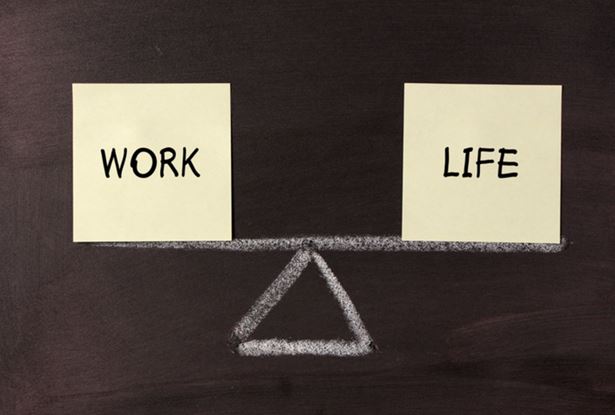
According to MHA (Mental Health America), less than 1/3 Americans are happy with their work, and around 70% of those who are currently employed are looking for other jobs. People who hate their jobs are unhappy and stressed and this is not just bad for the employee but the business as well.
Several scientific research papers have shown a direct correlation between unhappy workers and its negative impact on the company. One particular topic which is talked about in much detail is being unsatisfied about one’s job and absenteeism. However, though stressed out employees face various problems such as weight gain, increased risk of chronic illnesses and heart attacks, we’re going to be discussing how the workplace affects an individual’s mental health.
The question that is on every business owner’s mind is; what separates the employees who are excited about their work from those who are dissatisfied? While there may be a vast variety of difference depending on age and types of employment, a healthy work environment has been found to be the key to job satisfaction. Workers who are happy with their jobs show certain qualities such as commitment and loyalty to the organization, a sense of purpose and interpersonal relationships as reasons for their satisfaction. On the other hand, those who think about leaving their jobs usually do so because they find that there is a lack of teamwork, growth, and respect in the organization.
Before we start discussing why it is essential to talk about mental health at work, let’s examine the stigma that’s attached to mental health.
Stigma about mental health
One of the most unfortunate things about mental health is that even in the 21st century, it is still a taboo subject that is often overlooked and brushed off. The attitude towards mental health, especially in the workplace, is misunderstood and ignored. According to an article in Forbes, 56% employers say that they won’t hire someone with depression or other mental health problems. In fact, a few of the reasons why prospective or current employees don’t talk about their mental health issues are (a) they are afraid of being discriminated (b) they fear that they will get fired because employers are less accommodating towards mental illnesses.
However, what we all need to understand is that no one is safe from psychological illness 100% of the time. Though long-term diseases like dementia may not be faced, everyone goes through challenges in coping with their emotions and situations.
If you look at the stats, you’ll find that early Alzheimer’s and some other diseases are treatable when caught on time. But when there’s no awareness, and everyone is afraid of speaking about it, prevalence rates will increase. Statistics show that 1 in 5 American adults will become diagnosed with a mental health condition in any given year and that 50% of all Americans will meet the criteria for being mentally ill. These stats are even more surprising because according to the NIMH, 45% of mental health patients go untreated.
Why should we talk about mental health at work?
According to WHO (World Health Organization), 12 billion working days will be lost owing to untreated anxiety and depression by 2030. The price of mental illness is rather high, and the research also concluded that by 2030, the global cost of both these disorders would be $925 billion. When depression is left untreated, it costs the US economy over $51 billion in absenteeism and $26 billion in lost productivity. Another study done by First Chicago Corporations found that depressive disorders accounted for more than half of the total medical bills paid for mental health problems.
However, research shows that more than 80% of patients with clinical depression can be treated successfully if interventions and support are kept in place. Moreover, if steps are taken to be proactive rather than reactive, we can save thousands of dollars on a single individual.
Other than depression and anxiety disorders, studies have also shown that mental diseases like dementia and Alzheimer’s when detected earlier on is treatable. So, even if you think you or a loved one is just going through aging, you need to make it a point to do an MCI test so you can be sure of any triggers.
What can organizations do?
A study conducted for employees with mental health issues found that 85% of respondents agreed that these employees could be just as useful as others if they had access to the right support. So, what can you do to improve your work environment and give as much support to your employees?
Here’re a couple of things you can start off with.
Run awareness programs and webinars
One of the best ways to bring awareness about mental health to your workplace is to conduct free webinars. Give your employees resources that are simple yet practical, so they are aware of any signs and symptoms of mental illness.
Break the silence
The first step towards a better and more aware working environment is to break the stigma attached to mental health. Ask your employees to talk to you about any issues they might be facing so things can be detected and diagnosed early. Remember that bosses who are open and receptive will be more likely to be liked by the workforce.
Decrease stress causing characteristics
Things like high workloads, lower levels of control over responsibilities and tasks and lower coworker support increase stress and result in job dissatisfaction and absenteeism. So, make sure that you know the strengths and weaknesses of your employees and give them the workload and working environment that they feel comfortable in.
Though there are a lot of other things your organization can start doing to improve the mental health awareness among employees and managers, the ones we have talked about here are those which can be adopted immediately. Remember, mental health is a serious issue, and because the workplace can be an especially significant contributor to stress, anxiety, and other disorders, it is crucial that you as an employer play your role.


Facebook
Twitter
Pinterest
Instagram
Google+
RSS